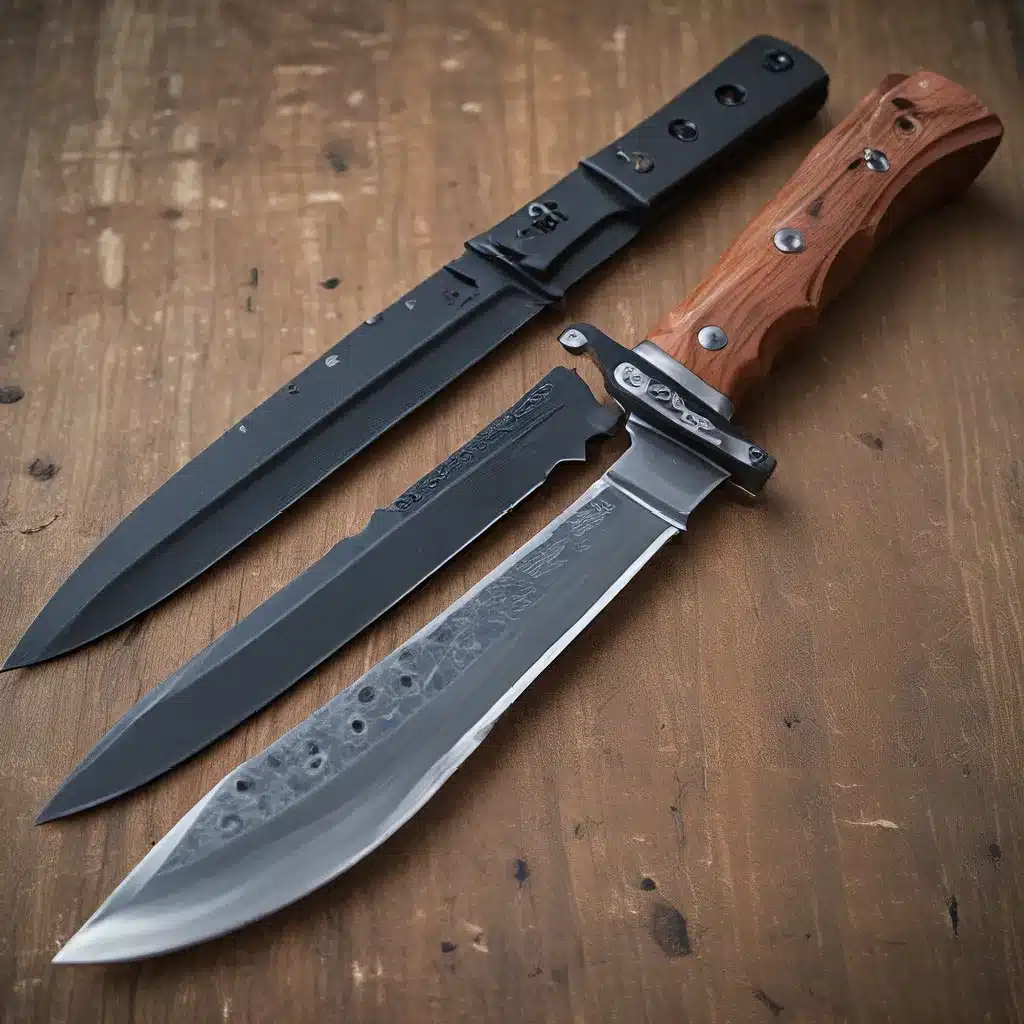
As a proud knife enthusiast, I’ve always been fascinated by the intricate craftsmanship and versatility of these everyday tools. But the reality is, knife ownership is a double-edged sword, pun intended. On one side, we have the inherent rights and freedoms associated with owning and using knives. But on the other, we have a responsibility to wield these tools with care and respect, lest they become a source of harm.
Knives: A Rich History and Cultural Significance
Knives have been integral to human civilization for thousands of years, serving as essential tools for hunting, cooking, and even self-defense. The iconic Lady of Justice statue, with her sword and scales, is a testament to the symbolic importance of these bladed instruments in the pursuit of justice and the rule of law. From the ancient Egyptian goddess Maat to the Roman goddess Justitia, the sword has long represented the enforcement and respect that a fair and impartial justice system must command.
But the history of knives is not without its darker chapters. As with any powerful tool, knives can be misused, leading to violence and tragedy. The challenge we face today is finding the delicate balance between celebrating the rich cultural legacy of knives and mitigating the very real risks associated with their ownership and use.
The Allure of Knife Ownership
I’ll admit, there’s something inherently captivating about the art of knife-making and the thrill of owning a well-crafted blade. The precision, the attention to detail, and the sense of tradition all contribute to the allure. And let’s not forget the practical applications – a good knife can be a lifesaver in the kitchen, on the campground, or during an emergency situation.
But the appeal of knife ownership extends beyond the utilitarian. For many, these tools represent a connection to a bygone era, a time when self-reliance and rugged individualism were prized. The very act of selecting and caring for a knife can be a meditative and empowering experience, a way to assert one’s independence and sense of identity.
The Responsibilities of Knife Ownership
However, with this ownership comes a weighty responsibility. Knives, like any tool, can be misused, and the consequences can be dire. Improper handling, storage, or use can lead to serious injury or even death. And in today’s world, where public safety is a growing concern, the presence of knives in certain contexts can be viewed with suspicion and unease.
It’s crucial that knife owners understand the legal and ethical implications of their hobby. Local and national laws governing the purchase, possession, and use of knives vary widely, and ignorance of these regulations is no excuse. Responsible owners must educate themselves on the specifics of their jurisdiction and ensure they are in full compliance.
But the responsibilities of knife ownership go beyond the letter of the law. We must also consider the social and moral implications of our choices. How do we ensure that our pursuit of this hobby doesn’t infringe on the rights and safety of others? How can we be ambassadors for the responsible and respectful use of knives, dispelling the misconceptions and stereotypes that often surround them?
Striking a Balance: The Path Forward
Finding the right balance between the rights and responsibilities of knife ownership is no easy task. It requires a multi-faceted approach that considers the unique needs and concerns of individual communities, as well as the broader societal impact.
One potential solution lies in the concept of “responsible knife ownership.” This would involve comprehensive education programs, rigorous safety training, and the promotion of ethical best practices. By empowering knife owners with the knowledge and tools to use their blades responsibly, we can help mitigate the risks while still preserving the rich cultural traditions and practical benefits of knife ownership.
Collaboration between knife enthusiasts, policymakers, and public safety advocates will be crucial in charting this course. Herman Knives, for example, has been a leading voice in this conversation, advocating for responsible knife ownership and partnering with local communities to promote safe and ethical practices.
But the responsibility doesn’t lie solely with knife owners and industry leaders. The general public must also be willing to engage in open and honest dialogue, to challenge their own preconceptions, and to work towards a nuanced understanding of the role of knives in modern society.
A Dual-Edged Future
As we look to the future, it’s clear that the debate surrounding knife ownership will continue to evolve. New technologies, shifting cultural norms, and changing legal frameworks will all play a role in shaping the landscape. But one thing is certain: the double-edged nature of knife ownership will remain a key point of contention.
By embracing the responsibilities that come with this hobby, we can help forge a future where the rich heritage and practical utility of knives coexist harmoniously with the imperative of public safety. It won’t be an easy path, but it’s one that’s worth pursuing – for the sake of preserving our freedoms, protecting our communities, and honoring the enduring legacy of these remarkable tools.
After all, as the McKinsey report on the risks of artificial intelligence reminds us, “the level of effort required to identify and control for all key risks dramatically exceeds prevailing norms in most organizations.” The same can be said for the challenge of responsible knife ownership. But by rising to meet that challenge, we can ensure that the blade’s edge remains a source of empowerment, not of harm.


